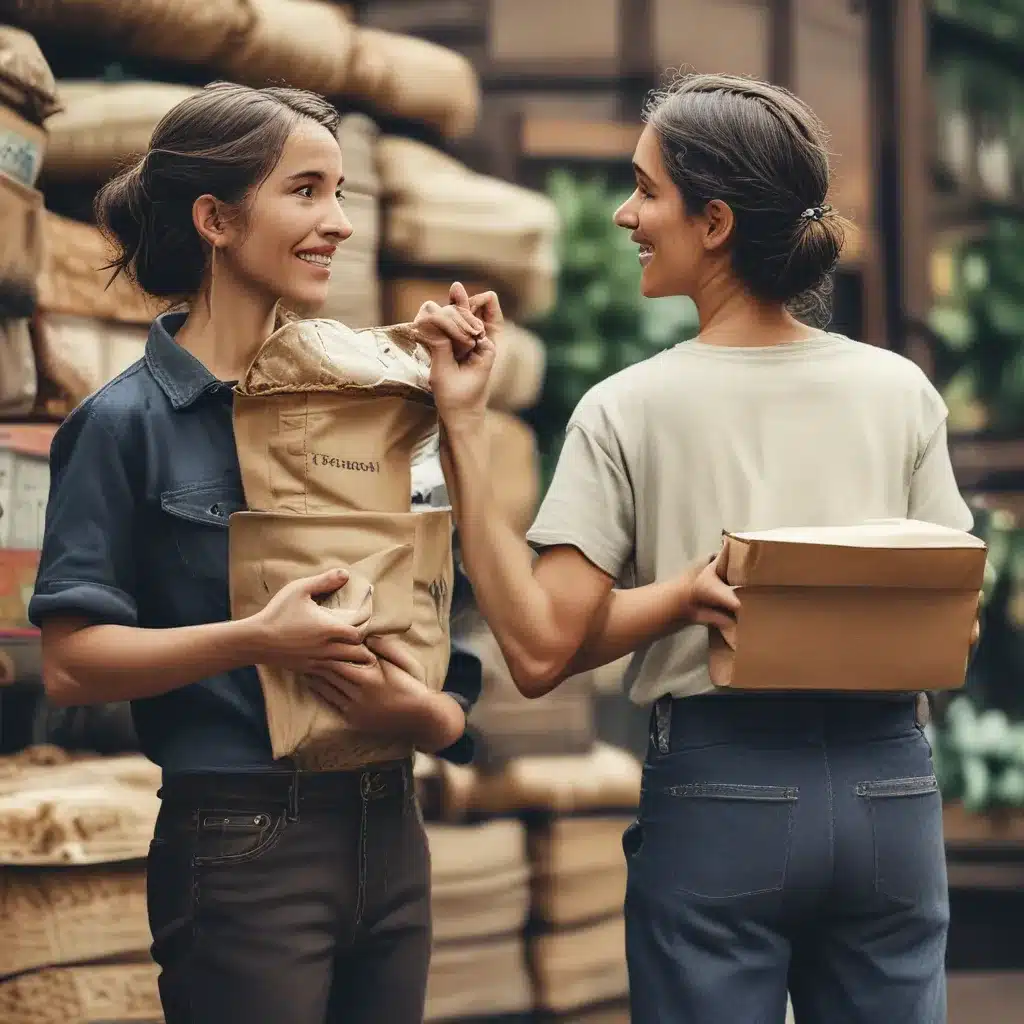
The Lowdown on Direct Trade Coffee
As a self-proclaimed coffee connoisseur, I’ve always been intrigued by the mysterious world of direct trade coffee. What exactly does “direct trade” mean, and why is it so highly prized by coffee aficionados like myself? Well, buckle up, my caffeinated friends, because I’m about to take you on a deep dive into the heart of this specialty coffee movement.
You see, the traditional coffee supply chain can be a bit, shall we say, convoluted. Imagine a game of telephone, but with coffee beans instead of whispered secrets. The beans exchange hands multiple times before ultimately reaching your local café or grocery store shelf. This long, winding journey can often dilute the quality and mask the unique characteristics of the beans.
But direct trade coffee is different. It’s like a secret handshake between the coffee grower and the coffee roaster, cutting out the middlemen and allowing for a more intimate, transparent relationship. The grower gets to showcase their hard work and the roaster gets to highlight the true terroir of the beans. It’s a win-win situation, and the result is a cup of coffee that’s bursting with flavor and complexity.
Now, I know what you’re thinking: “Okay, that sounds great, but how do I know if the coffee I’m buying is truly ‘direct trade’?” Well, my friends, that’s where it gets a bit tricky. There’s no universally accepted definition or certification for direct trade coffee, and some roasters may use the term a bit loosely. But fear not, I’ve done my fair share of research to help you navigate the direct trade landscape.
Uncovering the Truth Behind Direct Trade
One of the key things to look for when identifying a true direct trade coffee is the level of transparency and communication between the grower and the roaster. A reputable direct trade roaster should be able to provide detailed information about the origin of the beans, the farmers who grew them, and the specific processing methods used. They should also have established long-term relationships with their growers, often visiting the farms and working closely with the producers.
But let’s not forget the all-important taste test. A direct trade coffee should be a true reflection of the terroir, with unique flavor profiles that you won’t find in your typical grocery store blend. Think bright, fruity notes, balanced acidity, and a smooth, satisfying finish. It’s like taking a sip of liquid magic, transported straight from the lush, verdant coffee-producing regions of the world.
And speaking of those coffee-producing regions, let’s take a moment to appreciate the hard-working farmers who make direct trade coffee possible. These individuals are the true heroes of the specialty coffee movement, cultivating their crops with meticulous care and attention to detail. They’re the stewards of the land, preserving traditional farming methods and ensuring the sustainability of their communities.
The Importance of Transparency and Ethical Sourcing
But it’s not just about the taste, my friends. Direct trade coffee also represents a more ethical and sustainable approach to the coffee industry. By cutting out the middlemen, growers are able to receive a larger share of the profits, allowing them to reinvest in their farms, their workers, and their communities.
And the benefits don’t stop there. Direct trade coffee often aligns with fair trade principles, ensuring that the farmers are paid a living wage and that their workers are treated with dignity and respect. Additionally, many direct trade roasters prioritize environmental sustainability, working closely with their growers to implement eco-friendly farming practices and protect the delicate ecosystems of coffee-producing regions.
Now, I know what you’re thinking: “Wow, that all sounds great, but how can I be sure I’m supporting a true direct trade operation?” Well, I’ve got a few tips for you. First and foremost, look for roasters who are transparent about their sourcing practices and who actively engage with their growers. Many will even feature information about the individual farms and farmers on their website or packaging.
You can also look for certifications like the Specialty Coffee Association’s (SCA) Coffee Roasters Guild Sustainability Verified program, which provides a comprehensive evaluation of a roaster’s sustainability practices. And don’t be afraid to reach out to the roaster directly with any questions you might have – a reputable direct trade company should be more than happy to share the details of their supply chain and sourcing.
Experiencing the Joys of Direct Trade Coffee
Now, I know I’ve thrown a lot of information at you, but trust me, it’s all worth it. Because when you finally get to savor that first sip of a truly exceptional direct trade coffee, it’s like a symphony of flavor and aroma exploding in your mouth. It’s a revelation, a moment of pure bliss that transports you to the lush, verdant landscapes where these precious beans were lovingly cultivated.
And the best part? You can experience this magic right here in Brooklyn at Brooklyn’s Georgian Coffee House. Their team of coffee connoisseurs has meticulously curated a selection of direct trade coffees from around the world, each one a unique and captivating expression of its origin.
So what are you waiting for, my fellow coffee lovers? Dive in, explore the world of direct trade, and discover the true essence of specialty coffee. Trust me, your taste buds will thank you.



















